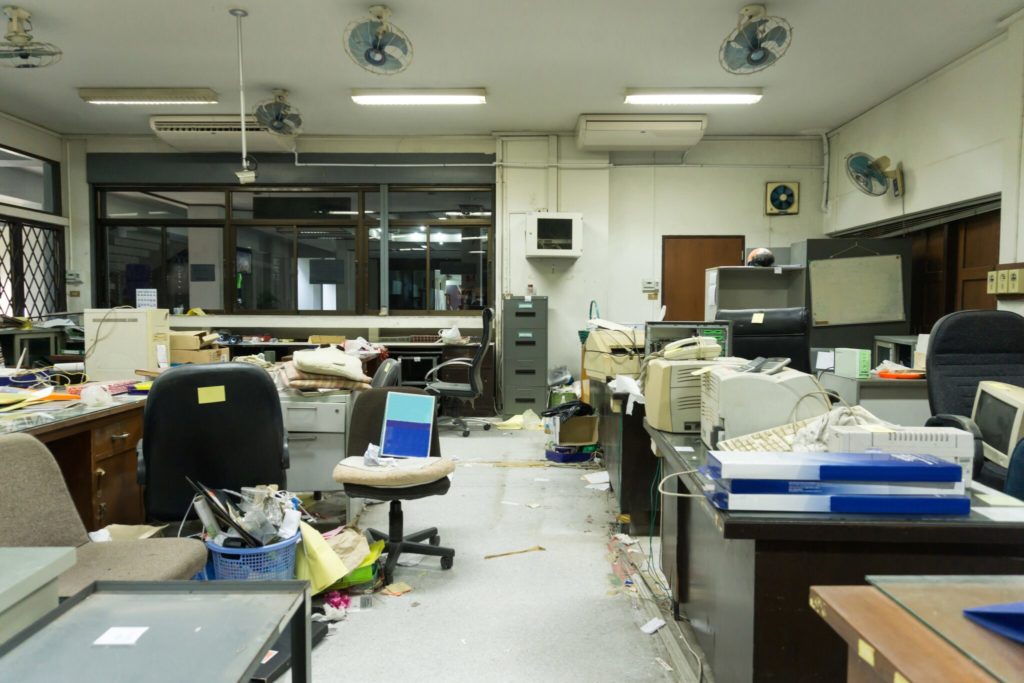Housekeeping
Poor housekeeping can result in dirty, untidy, overcrowded and obstructed workplaces. This often leads to a variety of hazardous situations.
Poor housekeeping creates hazards for everyone. For example, if you don’t clean up spillages and tidy away tools after use, there’ll be a slip and trip hazard. Poor storage of materials may also present a fire hazard, not only because of the nature of the materials but also because they block the route to a fire exit.
You should follow your employer’s instructions at all times and where this is not possible, you should discuss this with them.
You must ensure that you and your fellow colleagues tidy up after themselves and to report any problems with housekeeping to your supervisor or manager.
Your employer should ensure that regular housekeeping inspections are carried out to keep on top of this common but often overlooked hazard.

Welfare facilities
Employers must provide a number of facilities to ensure the welfare and comfort of their workforce:
• Toilets and washing facilities.
• Drinking water with an upward drinking jet or supply of cups.
• Storage for clothing and changing areas, if appropriate.
• Rest and eating areas.
• Showers, depending on the type of work.
In addition, toilets and washing facilities must be kept clean, ventilated and well lit. Regular inspections will help to make sure they stay in a good condition.
